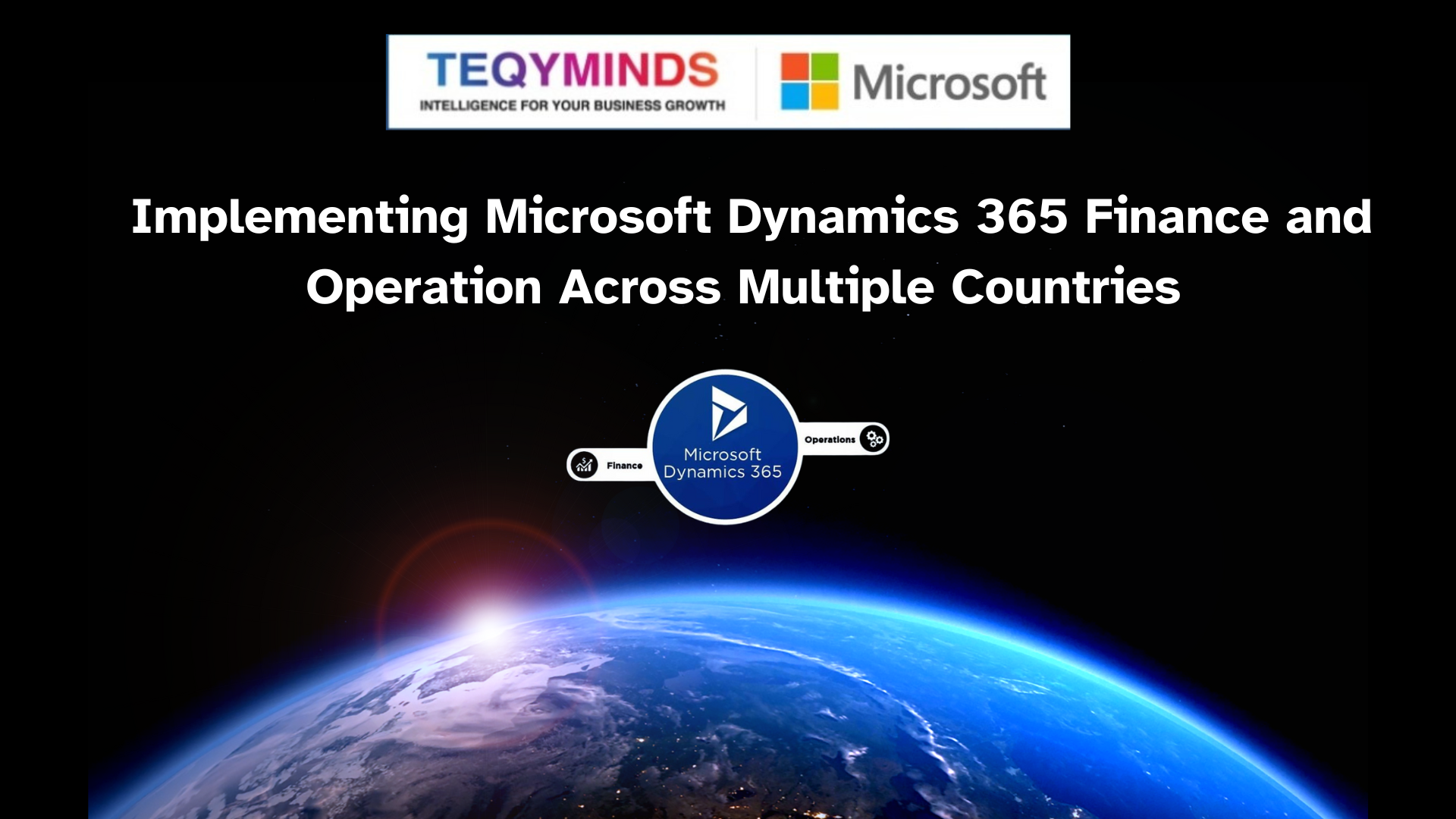Expanding your business to operate in multiple countries is a huge milestone that can bring great opportunities. However, managing finances and operations across various regions comes with its own set of challenges. Implementing an effective ERP system like Microsoft Dynamics 365 Finance & Operations (D365 F&O) can help companies streamline their processes, ensure compliance, and maintain consistent control over global operations.
In this blog, we’ll explore the key steps, challenges, and benefits of implementing D365 F&O in multiple countries to help you make your global expansion smooth and successful.
Why Choose D365 F&O for Multinational Operations?
Microsoft Dynamics 365 F&O is designed to support complex business structures and manage financials, supply chains, and operations on a global scale. Here’s why it’s a great choice for multinational businesses:
-
- Centralized Data Management:
- Global Compliance and Localization:
- Scalability
Key Steps for a Successful Multinational Implementation
Implementing D365 F&O across multiple countries requires careful planning and execution. Here are the key steps to consider:
1. Define Your Global Strategy
Start by clearly defining your business objectives for each country. Identify the specific needs and requirements of each region, including local regulations, financial reporting standards, and language preferences. This strategy will help you customize D365 F&O to meet each location’s unique needs.
2. Standardized Business Processes
Before implementing the ERP system, standardize your core business processes as much as possible. This standardization will help maintain consistency across different regions and make it easier to manage the implementation process. At the same time, allow some flexibility to accommodate local variations where necessary.
3. Focus on Compliance and Localization
One of the biggest challenges of operating in multiple countries is adhering to different tax laws, financial regulations, and reporting requirements. D365 F&O comes with localization features to help businesses comply with local laws. Work with local experts or consultants to ensure your system meets all compliance requirements in each country.
4. Plan for Data Migration and Integration
Migrating data from existing systems to D365 F&O is a critical step. Create a detailed data migration plan to ensure accurate and complete transfer of financial and operational data. Additionally, plan how D365 F&O will integrate with other systems you may use, such as CRM, e-commerce platforms, or legacy software.
5. Implement in Phases
For a smooth rollout, consider implementing D365 F&O in phases, starting with one or two key locations before expanding to other countries. This approach allows you to test the system, make adjustments, and resolve any issues early on.
6. Train Your Team
Training is essential for a successful ERP implementation. Ensure that your team members in all locations receive comprehensive training on how to use D365 F&O effectively. Utilize local language training materials and provide ongoing support to help users adapt to the new system.
7. Monitor and Optimize
After the initial rollout, continuously monitor the system’s performance and gather feedback from users. Use this information to make necessary adjustments and optimizations, ensuring the system meets the evolving needs of your business across all regions.
Challenges of Multinational Implementation
Implementing an ERP system across multiple countries can be challenging. Here are some common hurdles and how to address them
- Complex Compliance Requirements
- Cultural and Language Differences
- Data Privacy and Security
- Change Management
Benefits of a Multinational D365 F&O Implementation
When successfully implemented, Dynamics 365 Finance & Operations can offer numerous benefits to multinational businesses:
- Enhanced Financial Visibility
- Improved Operational Efficiency
- Better Compliance and Risk Management
- Scalable Growth
- Increased Collaboration
Conclusion
Implementing Microsoft Dynamics 365 Finance & Operations in multiple countries can be a game-changer for your business, offering a unified platform to manage finances, operations, and compliance across different regions. Although the process can be challenging, careful planning, local expertise, and phased implementation can help ensure a smooth rollout.
By leveraging the powerful features of D365 F&O, businesses can achieve better financial visibility, streamlined operations, and a strong foundation for growth in the global market. If your company is expanding into new regions, investing in a multinational ERP solution like D365 F&O can help you stay competitive, efficient, and ready to meet the demands of a dynamic, international landscape.






Leave A Comment